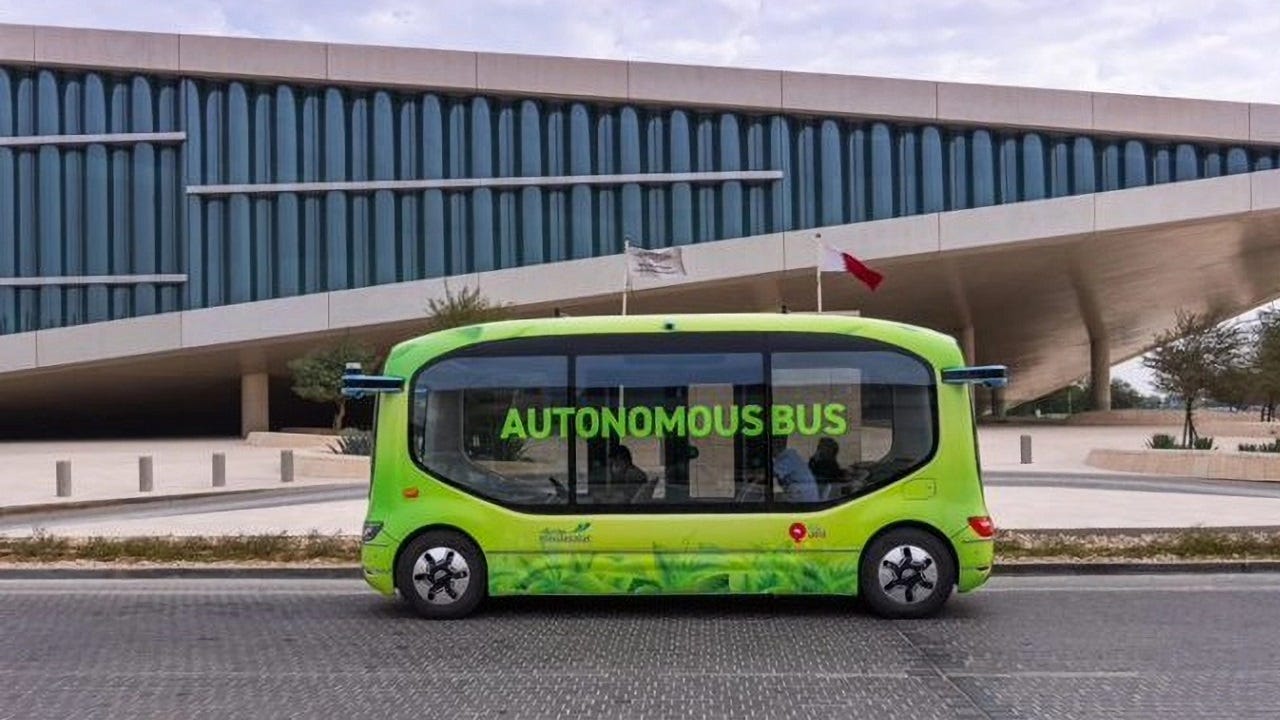Qatar announces 5-year driverless vehicles strategy
Ministry of Transport strategy includes plan for AV regulatory framework
#Qatar #autonomousvehicles - Qatar's Minister of Transport HE Jassim Saif Ahmed Al-Sulaiti this week announced the country's national Self-Driving Vehicles Strategy, together with a 5-year plan. The plan aims to develop autonomous vehicle (AV) regulations for Qatar, and to provide provide smart, 'environmentally conscious' transport. The announcement came at The Autonomous e-Mobility (AEMOB) Forum, which took place during the Sustainable Transportation and Legacy for Generations” Conference and Exhibition (17-18 September).
SO WHAT? - Qatar's Ministry of Transport, the Ministry of Communications and Information Technology and other government departments have been planning to introduce autonomous vehicles for a number of years and both the government and private sector have signed agreements with automotive companies. However, so far only very limited testing of driverless vehicles has been allowed. The new strategy announcement could signal a renewed effort to pave the way for driverless services.
No details of the Self-Driving Vehicles Strategy were shared by the Ministry of Transport. However, the ministry is already working on frameworks for self-driving vehicles.
The Ministry of Transport shared a concept in 2016 for an ‘Autonomous Neighbourhood Fleet’ project to develop last mile transportation to connect public transport with final traveler destinations.
French driverless shuttle company Navya signed an agreement with then Group 8 Holding in 2017 to begin deploying driverless last mile, campus and district transport solutions in 2018. Although a Navya shuttle bus was tested in Qatar, the wider deployment didn't take place.
In 2019, Qatar Investment Authority (QIA) signed an agreement for 'Project Qatar Mobility' with Volkswagen AG to deploy a fleet of self-driving Level 4 electric shuttles for transportation during the 2022 FIFA Qatar World Cup. However, this plan didn't come to fruition.
More recently, in 2021 Airlift Systems (now Conical Systems) and Talabat partnered with Education City in Qatar for a limited trial of autonomous door-to-door delivery services.
Last year, a Chinese manufacturer of Level 4 autonomous buses, Yutong, carried out road tests at Qatar Foundation.
ZOOM OUT - Qatar's neighbours, Saudi Arabia and the United Arab Emirates, are both much further ahead with their driverless vehicles strategies. There are multiple campus and district trials of driverless shuttle buses in Saudi Arabia and a long running transport service using Navya shuttles at NEOM, the mega-city development on the Kingdom's West coast.
In the UAE, Abu Dhabi has had a autonomous taxi and shuttle bus trial running for leisure and tourist attractions for the past two years, and Dubai is trialing Cruise taxis, with a plan to have 4,000 of the driverless vehicles on the road by 2030.
In comparison, Qatar seems far behind in the race to put autonomous vehicles on the roads. However, last year's staging of the World Cup required the focus of all Qatar's government departments and it's easy to see why pushing for driverless transport wasn't a priority in the end.
IMO - Although it looks like Saudi and the UAE are accruing more experience in autonomous vehicles, all trials and services are at a very early stage and so there's no reason why Qatar can't join the party.
You might like to read…
Cruise Origin debuts at WGS 2022 (Middle East AI News)
KAUST's trials autonomous delivery (Middle East AI News)
G42 starts driverless taxi service trials in Abu Dhabi (Middle East AI News)


